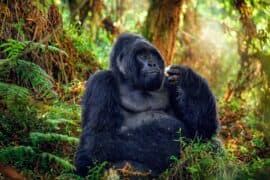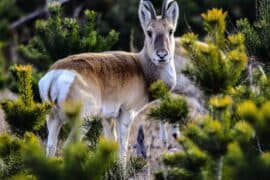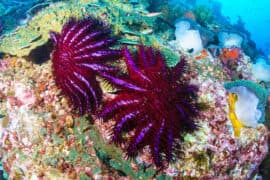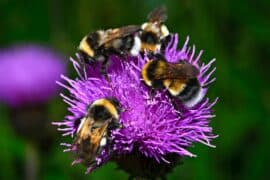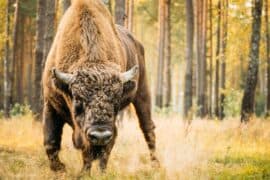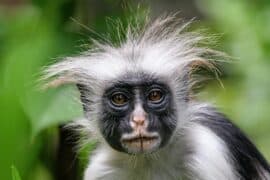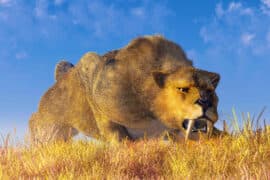Black-and-white snub-nosed monkey
(Rhinopithecus bieti)
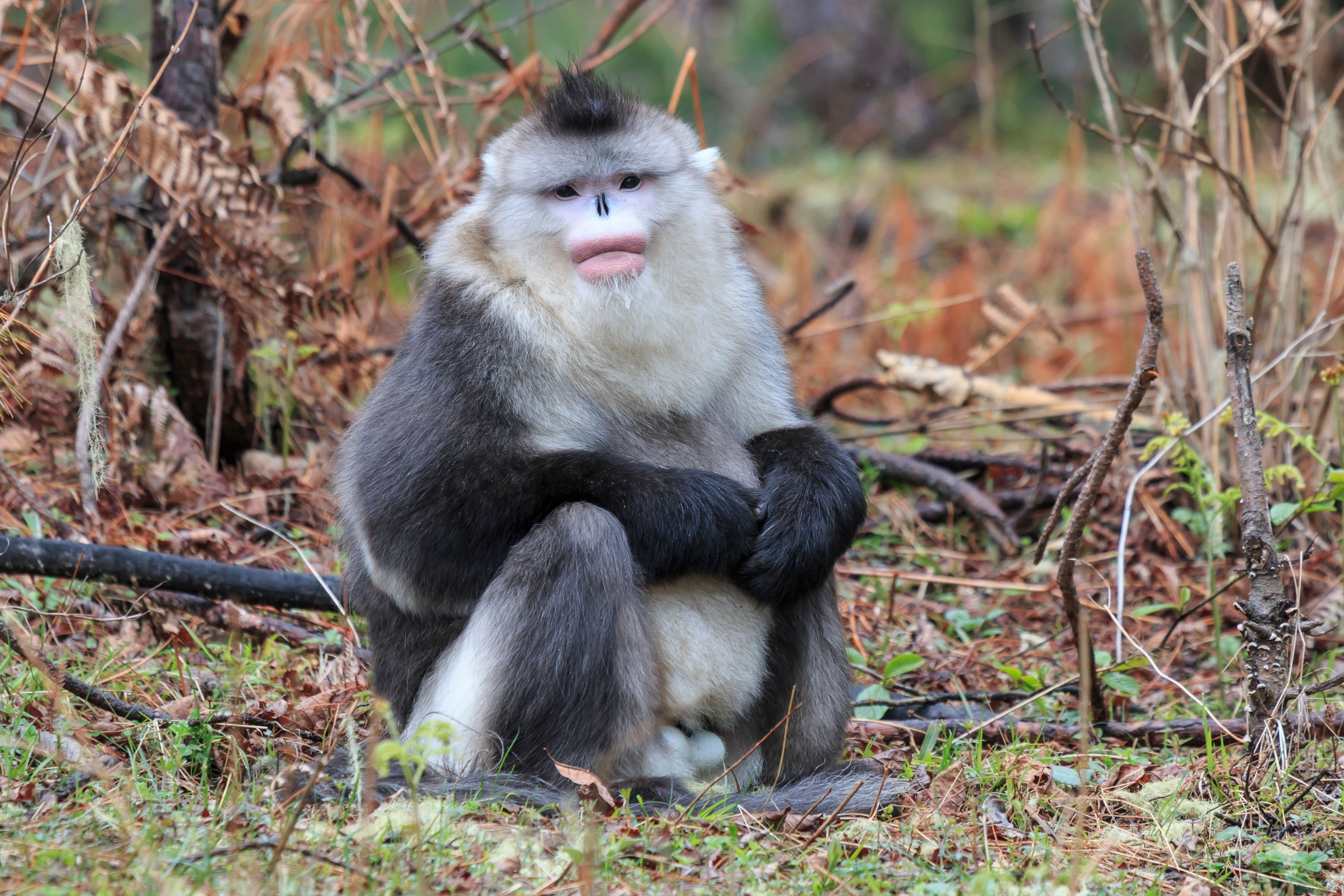
Description
The black-and-white snub-nosed monkey (Rhinopithecus bieti), also known as the Yunnan snub-nosed monkey, is a large black and white primate that lives only in the southern Chinese province of Yunnan, where it is known to the locals as the Yunnan golden hair monkey and the black-and-white snub-nosed monkey. The common name, black snub-nosed monkey, is issued to Rhinopithecus strykeri, inhabiting the Northern Sino-Myanmar border. Coniferous and deciduous forests in the mountainous regions of Yunnan are the ideal terrain for these primates. It is threatened by habitat loss, and is considered an endangered species. With their unique adaptations to their environment, these monkeys thrive at extreme altitudes despite the below freezing temperatures and thin air. This primate's diet is mainly made up of the large amounts of lichens available in their region. Male and female black-and-white snub-nosed monkeys have no colorization differences, but do differ in sizes. Females weigh 20 lbs, while males are around 30 lbs. Adult black-and-white snub-nosed monkeys are identifiable by their gray/black and white fur. The underbelly and central facial zone are all white, while the rest of the body is a grayish black color. Their fur is extremely thick to protect them against below freezing temperatures. They are born with white fur that darkens with age. Another distinctive feature shared by both adults and babies, is their hairless and vibrant pink lips. These primates get the "snub-nosed" part of their name from the absence of nasal bones. This is considered their most distinctive feature. Unlike many primates, the black-and-white snub-nosed monkey's diet consists mainly of lichen found on trees. Lichens grow in abundance in mountainous regions, and make for a reliable, year-round food supply. These primates will also eat bamboo leaves and other, more seasonal plants if the opportunity presents itself. Many food items vary depending on the geographical location of each troop including rhododendron flower's nectar in the spring. Lichens are toxic to most animals, but the black-and-white snub-nosed monkey has specialized digestive enzymes similar to those of a cow that remove the harmful bacteria.
Taxonomic tree:

